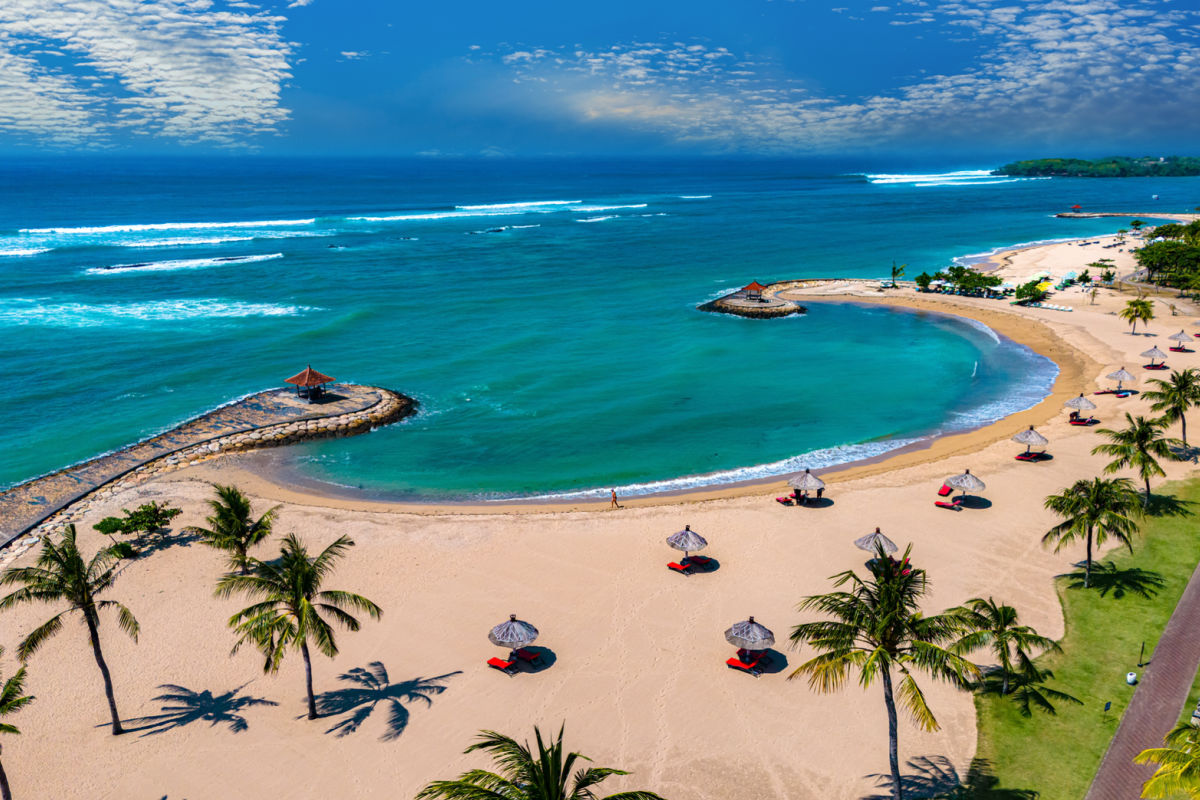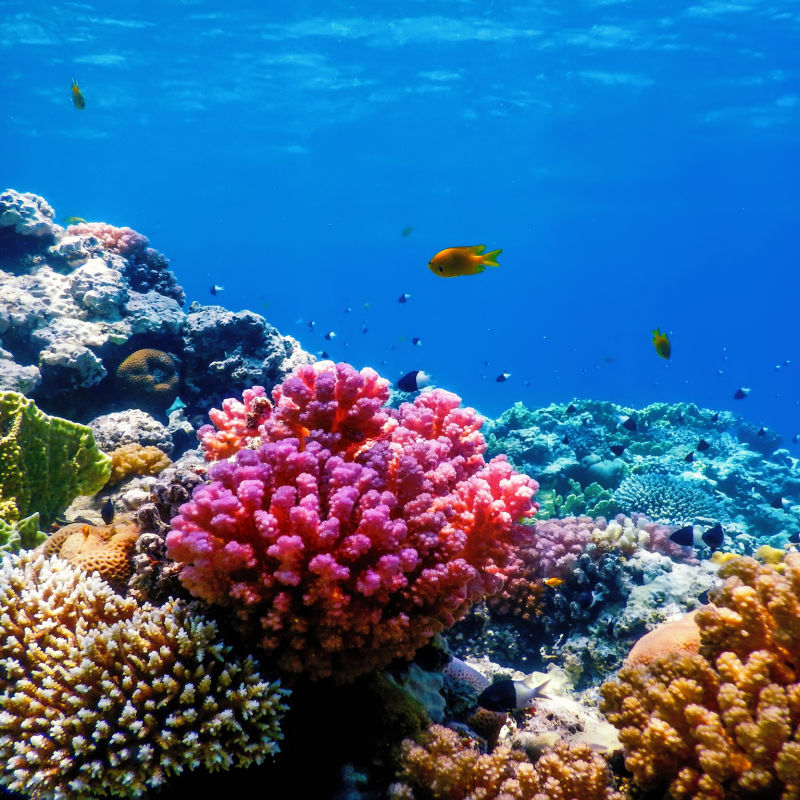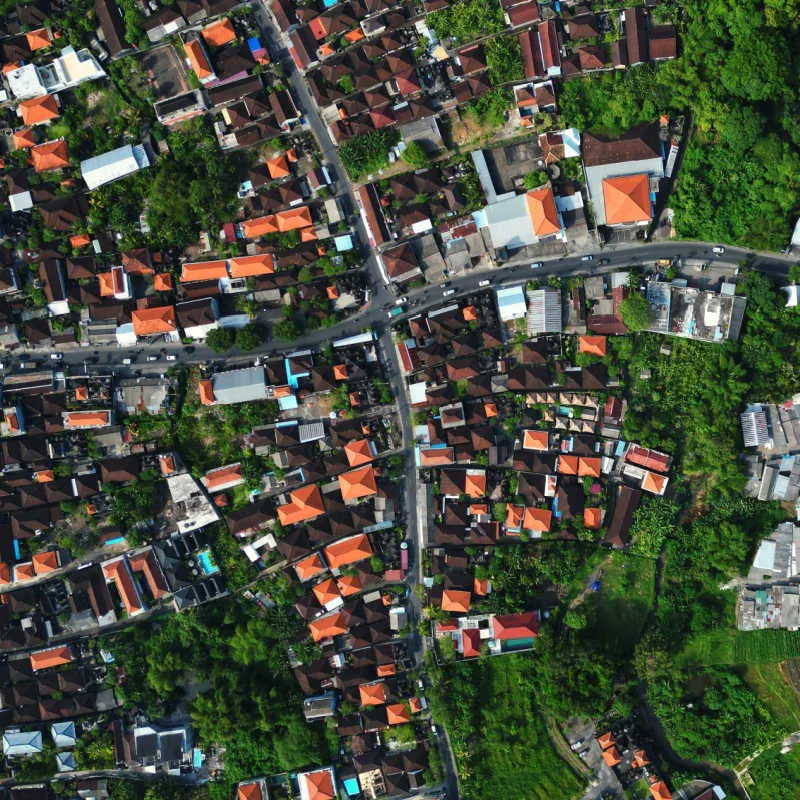All eyes have been on Bali this week as the province hosts the Bali International Air Show for the first time in 20 years. The massive aviation industry event has seen some huge announcements in terms of Indonesia’s commitment to achieving net zero emissions.
However, with water shortages and droughts on the horizon in top tourism resorts, environmentalists are concerned about the impact of climate change across the region.

Speaking at the Bali International Air Show earlier this week, the Indonesian Minister for Investment and Maritime Affairs, Luhut Bisar Pandjaitan, announced that the country will be moving towards the use of more sustainable aviation fuels.
In partnership with the central government, airline Virgin Australia, and Pertamina, the move towards more sustainable fuel use in the aviation industry is a big step towards net zero emissions.
The environmentally friendly aviation fuel sources that could be utilized in the future include coconut oil, seaweed, and rice chaff.
Over the last week, 160 kilolitres of Sustainable Aviation Fuel were distributed to Virgin Australia’s Boeing 737 aircraft as part of the Bali International Air Show to be used on flights between Denpasar, Brisbane, Melbourne, Sydney, and the Gold Coast.
It is not only in the aviation industry that Bali is moving towards net zero emissions. Across the province and across industries, climate-focused innovators are creating novel solutions to pressing problems.
In the tourism industry, for example, the newly appointed World’s Best Hotels in the World winner, Desa Potato Head, is pioneering regenerative tourism in the heart of one of Bali’s busiest tourism resorts, Seminyak.
In Sanur, a resort that has undergone a huge period of renovation and redevelopment over the last five years, environmental sustainability is a hot topic as the area steps into a new chapter as one of Asia’s leading medical tourism destinations.
On Wednesday, 18th September, Sanur welcomed Bali Zero Clean Emission Coalition to host the Bali Action for Climate event, supported by the World Resources Institute (WRI) Indonesia, the Institute of Essential Services for Reform (IESR), New Energy Nexus, and the CAST Foundation.
Speaking to reporters, Sofwan Hakim from the Bali Zero Clean Energy Coalition shared, “Visibility and sustainable support are very important so that these initiatives can develop and contribute significantly to the goals of Net Zero Emissions Bali.”
The event featured stalls, exhibitions, and presentations from some of Bali’s most impactful environmental projects, including BioRock, which has worked with communities in the tourism village of Pemuteran to restore damaged coral reefs.
FabLab showcased how innovation and creativity can come together to help reduce emissions in the manufacturing industry, and the BioSolar Farm demonstrated how solar can level up the agricultural sector on the island to benefit everyone.

However, as all these positive steps towards Net Zero Emissions are being taken, the threats of climate change remain very real for both residents and tourists in Bali.
Professor Rumanian Salain, who has been investigating spatial planning in Bali, reiterated this week that the province will face water shortages in 2025.
In 2021, water needs reached 5.9 million liters a second, and in 2025, the needs are predicted to reach 7.9 million liters a second.

The Executive Director of the environmental group WALHI, Made Kirsna Dinata, confirmed the latest figures with the media.
He explained, “Hotels are greedy in consuming water. If compared to the need for water from a domestic [resident] they only need 200 liters per person per day.”
At star-rated hotels, the minimum water requirement is 800 liters per room per day.
Dinata told reporters “the development of these various accommodation facilities will increase the burden and environmental impact, both the transfer of land functions to the ecological crisis and water crisis in Bali.’’
This is why many in Bali support the development of a moratorium to ban the development of new hotels, resorts, and tourism complexes in South Bali for up to ten years.

Bali is on a mission to promote more culturally respectful and sustainable tourism in the years to come.
Tourists planning visits to Bali can support this goal by choosing hotels and resorts with strong environmental values and policies and choosing activities that support the preservation of local culture.
Remove All Ads & Unlock All Articles… Sign up for The Bali Sun Premium

Plan Your Bali Holiday:
Book The Best English Speaking Drivers For Airport Transfers & Tours
Choose From Thousands of Bali Hotels, Resorts, and Hostels with Free Cancellation On Most Properties
Book Cheap Flights To Bali
Don’t Forget Travel Insurance That Covers Medical Expenses In Bali
For the latest Bali News & Debate Join our Facebook Community
SUBSCRIBE TO NEW POSTS
Enter your email address to subscribe to The Bali Sun’s latest breaking news, straight to your inbox.

arthur
Monday 23rd of September 2024
ok, let start by stop throwing trash in the rivers...
Anton
Monday 23rd of September 2024
The big parking lot at the airport where the people parked for the airshow is made of trash put a shovel in the ground and after 5cm you in to it 🤣 And coral reef ??? At serangan the kurakura project they destroyed so much coral there the last years. What in gods name are you all taking about dosa !!!!
Exp
Monday 23rd of September 2024
"Professor Rumanian Salain reiterated this week that the province will face water shortages in 2025."
Why 2025? It has been water shortage for years in parts of Bali including salt water intrusion into ground water i large areas.
Example: South Denpasar suffer from both water shortage and salt water intrusion. Despite this the local authorities are allowing for illegal building into the few rice fields left in the area. This cannot be ignorance but willful destruction.
LINK
Gustav Floberka
Monday 23rd of September 2024
More rainwater catchment reservoirs please. There's plenty of water in rainy season, most flowing straight to the ocean.
WAYAN BO
Monday 23rd of September 2024
Bali need almshouses and new visa regulation for elderly tourists, such life long visas.